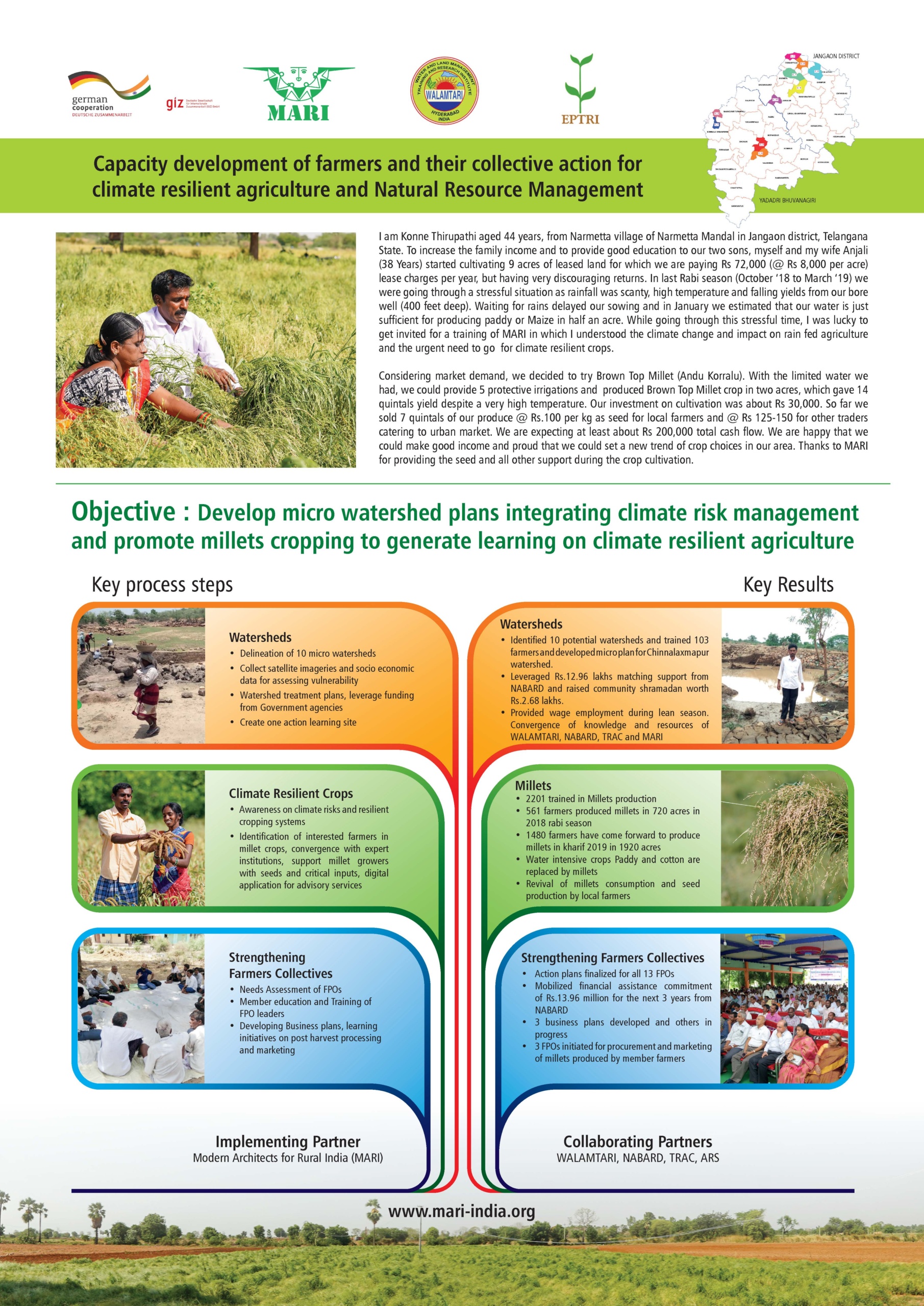- Agriculture is an important driver of India’s rural economy, with about 60% of agricultural land under rain-fed agriculture.
- Hence, we have emphasised in promoting sustainable agricultural practices for improving productivity in rain-fed areas.
- Our work in this area is a response to address farming crisis and farmers’ distress in rain-fed regions.
- Started with a study on farmers suicides in Warangal district in 1995, MARI continues to engage in finding appropriate solutions to farming crisis through promotion of non-pesticide management (NPM), enhancing quality of chillies to meet the export demand, seed village, organic agricultural production and better cotton initiatives.
Earth is so kind, tickle her with a hoe
and she laughs with a harvest.
Projects
| Project Title | Capacity development and enabling farmers’ collective action for managing climate risks and adaptation towards climate resilient agriculture and natural resources management in Krishna River Basin of Telangana State, India |
| Funded by | Deutsche Gesellschaft für Internationale Zusammenarbeit (GIZ) |
| Location | Yadadri Bhongir and Jangaon districts of Telangana State, India |
| Time Period | 01-08-2018 to 31-08-2019 |
| Main Objective | a) To integrate climate risk management and adaptation measures in the ten selected micro watersheds and contribute to sustainable improvements in agricultural production and income of the farmers. b) To provide capacity building and advisory services including introduction of digital solutions to the farmers for millets production and marketing. |
| Output/Impact | a) Increased knowledge and capacities of farmers in understanding the climate risks and their collective action for adaptation in 9 different watershed clusters of Warangal rural, Jangaon and Yadadri Bhuvanagiri districts would have created good potential for spreading the learning to other farmers in the surrounding areas. b) Increased knowledge and hands on experience gained by farmers on the significance of millet production for climate risk reduction and also to improve net incomes from agriculture would have created potential for up scaling the same. c) Improved crop management and marketing practices through application of digital solution facilitating effective processes of information collection and sharing system d) Increased strength of farmers organizations in leadership, accountability and democratic decision making mechanisms and their efficient partnership in managing the interventions aimed at climate risk management and adaptation. |
For more details please see our Annual Reports https://mari-india.org/resources/


